Design decisions for buildings and communities are critical to efforts to increase local and regional resiliency. Building designers — of residential, institutional, and commercial structures — should strive to incorporate passive and active survivability concepts into new and renovated structures.
Community planners and developers need to incorporate concepts that increase the capacity to maintain transportation flow, strategies to handle water management, and infrastructure approaches that will withstand a variety of risks.
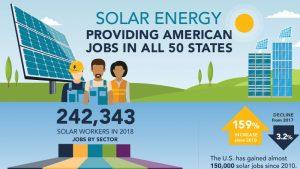
2018 National Solar Jobs Census
The Solar Foundation’s National Solar Jobs Census 2018 is the ninth annual report on the size and scope of the American solar workforce. Based on a rigorous survey of solar employers, it is the most comprehensive analysis of solar labor market trends in the United States.
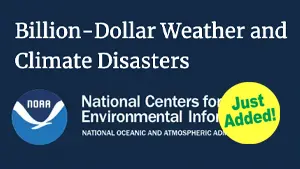
Billion-Dollar Weather and Climate Disasters
The National Centers for Environmental Information’s (NCEI) Billion-Dollar Disasters product is intended to show the impact of extreme weather and climate events on the economy in inflation-adjusted dollars.
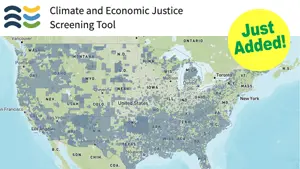
Climate and Economic Justice Screening Tool
The Climate and Economic Justice Screening Tool from the Council on Environmental Quality features an interactive map and uses datasets that are indicators of burdens in eight categories: climate change, energy, health, housing, legacy pollution, transportation, water and wastewater, and workforce development.
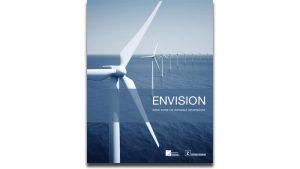
Envision Rating System for Sustainable Infrastructure
Published in 2015, the Envision system is composed of tools, covering all aspects of a product’s lifecycle, that are meant to introduce sustainability into infrastructure projects.
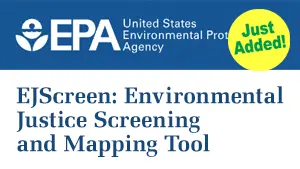
EPA Environmental Justice Screening and Mapping Tool
EJScreen is EPA’s environmental justice mapping and screening tool that provides EPA with a nationally consistent dataset and approach for combining environmental and socioeconomic indicators.
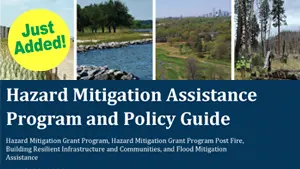
Hazard Mitigation Grant Program (HMGP)
FEMA’s Hazard Mitigation Grant Program provides funding to state, local, tribal and territorial governments so they can develop hazard mitigation plans and rebuild in a way that reduces, or mitigates, future disaster losses in their communities.
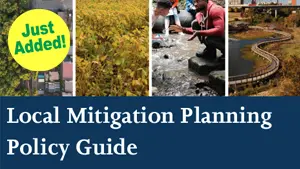
Local Mitigation Planning Policy Guide
Local Mitigation Planning Policy Guide is FEMA’s official policy on and interpretation of the applicable statutes and mitigation planning regulations in 44 CFR Part 201. This policy applies to local governments that develop, update and implement local mitigation plans, as well as FEMA and state officials who review and approve those plans.

New Report Says Eliminating Carbon Emissions by 2050 can Benefit State’s Economy
Virginia can eliminate carbon emissions by 2050 in an achievable and affordable way, providing a net benefit to the state’s economy.
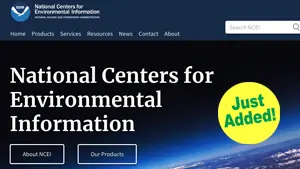
NOAA National Centers for Environmental Information
NCEI uses data to develop scientific products and services that can also be valuable resources for industries affected by weather and climate conditions.
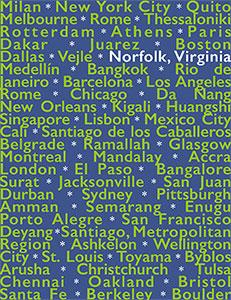
Norfolk’s Resilience Strategy
The city of Norfolk, as a 100 Resilient Cities grantee, developed a Resilience Strategy that was published in October 2015. The stated goal of the plan is to reduce risks as well as embrace new ways of thinking and thriving in conditions that require continuous innovation. The full plan is available online.

2018 National Solar Jobs Census
The Solar Foundation’s National Solar Jobs Census 2018 is the ninth annual report on the size and scope of the American solar workforce. Based on a rigorous survey of solar employers, it is the most comprehensive analysis of solar labor market trends in the United States.

Billion-Dollar Weather and Climate Disasters
The National Centers for Environmental Information’s (NCEI) Billion-Dollar Disasters product is intended to show the impact of extreme weather and climate events on the economy in inflation-adjusted dollars.

Climate and Economic Justice Screening Tool
The Climate and Economic Justice Screening Tool from the Council on Environmental Quality features an interactive map and uses datasets that are indicators of burdens in eight categories: climate change, energy, health, housing, legacy pollution, transportation, water and wastewater, and workforce development.

Envision Rating System for Sustainable Infrastructure
Published in 2015, the Envision system is composed of tools, covering all aspects of a product’s lifecycle, that are meant to introduce sustainability into infrastructure projects.

EPA Environmental Justice Screening and Mapping Tool
EJScreen is EPA’s environmental justice mapping and screening tool that provides EPA with a nationally consistent dataset and approach for combining environmental and socioeconomic indicators.

Hazard Mitigation Grant Program (HMGP)
FEMA’s Hazard Mitigation Grant Program provides funding to state, local, tribal and territorial governments so they can develop hazard mitigation plans and rebuild in a way that reduces, or mitigates, future disaster losses in their communities.

Local Mitigation Planning Policy Guide
Local Mitigation Planning Policy Guide is FEMA’s official policy on and interpretation of the applicable statutes and mitigation planning regulations in 44 CFR Part 201. This policy applies to local governments that develop, update and implement local mitigation plans, as well as FEMA and state officials who review and approve those plans.

New Report Says Eliminating Carbon Emissions by 2050 can Benefit State’s Economy
Virginia can eliminate carbon emissions by 2050 in an achievable and affordable way, providing a net benefit to the state’s economy.

NOAA National Centers for Environmental Information
NCEI uses data to develop scientific products and services that can also be valuable resources for industries affected by weather and climate conditions.

Norfolk’s Resilience Strategy
The city of Norfolk, as a 100 Resilient Cities grantee, developed a Resilience Strategy that was published in October 2015. The stated goal of the plan is to reduce risks as well as embrace new ways of thinking and thriving in conditions that require continuous innovation. The full plan is available online.
